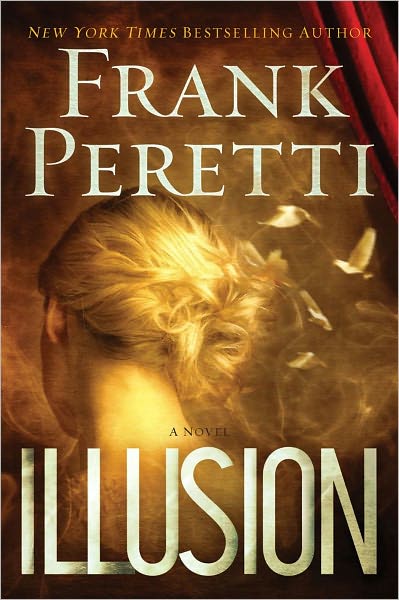
©2008 Thomas Nelson, Nashville
I tested my on-again, off-again reader’s relationship with Ted Dekker the past couple of weeks. Dekker is the breakthrough author of books that have loose connections (or not so loose connections) with each other. His early works thrilled the Christian reading community because they followed the age-old pattern set by pioneers in the Christian fiction industry. I believe that the departure from this well-worn path started with Thr3e. The stretching of his writing wings brought in an entirely new readership for Dekker. It also prompted me, from time to time, to liken Dekker’s writing style to that of mainstream novelist Stephen King. Dekker’s good with words, and this latest release is an excellent example.
For this effort we were on-again. Sinner is the culmination of a trilogy of books set in Paradise, Colorado. The story begins in Showdown where we learn about the Books of History into which a young boy, Billy, has written pure evil. And Evil’s name is Marsuvees Black. The story continues in Saint, the not-so-engaging story of a grown-up Johnny (who helped facedown Black in Showdown in order to save his hometown).
In this third effort, we follow the lives of the three children (Billy, Darcy, and Johnny) all grown up and learning to deal with special “gifts” they had written into the Books of History for themselves in order to defeat evil wherever they found it. Thirteen years after the destruction of the monastery outside of Paradise where Billy and Darcy spent their childhood years, we find them young adults discovering that Billy can read the thoughts of people he is looking at and that Darcy can control the actions of people with her voice.
Armed with their new talents, these two young people wind up in Washington, DC where they help a select council of the elite to change the Constitution in order for Tolerance to be the law. In rewriting the Constitution, most religious jargon becomes relegated to the arena of hate speech.
Side stories include the coming to faith of a young witch named Kat, and lynchings and riots orchestrated by Black behind the scenes setting the stage for the aforementioned law change.
Fans of Dekker and his later writings will lap up Sinner. Readers who were turned off by the edginess of stories like Red, White, and Black will find Sinner to be more of the same. Readers outside Christian circles may find the text a bit too preachy for their tastes, but the story flows well. Dekker includes his trademark plot and character twists which keep the reader interested and guessing. All in all this one is worth being on-again with Dekker. I give it four reading glasses.
All in all this one is worth being on-again with Dekker. I give it four reading glasses.
—Benjamin Potter, November 20, 2008
















